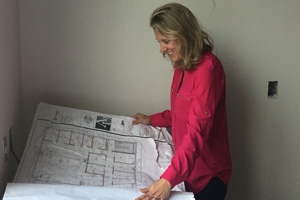Business
AU's Center for Innovation Opens New Doors

The AU Center for Innovation (AUCI) is on the rise—and so are its programs.
This fall, the Center will settle into AU’s Don Meyers Technology and Innovation Building, expanding AUCI from 400 to 2,000 square feet. The larger facility is both a physical and curricular upgrade, offering more space for programs, research and offices.
“This will open new doors for our students and our faculty,” says Siri Terjesen, AUCI Director.
The AUCI, which already boasts 400+ students in its classes, can now offer three new courses: an independent study for students researching entrepreneurship; an independent study for start-up companies; and a Fed Tech Commercialization class that teaches students how to commercialize government-funded lab technologies.
The space will house AUCI faculty offices, giving students centralized access to their professors—a luxury not formerly available. The building’s amenities are also an upgrade; students can utilize a brand new lounge and kitchenette, and eventually an entrepreneurship library, providing places for them to rest, re-charge and work. Terjesen’s biggest excitement isn’t the Center’s new facilities, though, or even its classes. It’s their new neighbors.
The Technology and Innovation Building, which opened in Spring 2016, also houses AU’s computer science, physics, math and statistics departments, and the university’s game design and persuasive play program—a collaboration between CAS and SOC.
This interdisciplinary environment breeds the type of innovation the AUCI strives for. Terjesen hopes to diversify the Center’s programming with these different fields, and collaborate among departments. “We have great relationships with faculty across campus, but we’ve never all been in one spot before. I’m excited to see what comes out of this,” she says.
This is especially helpful for the incubator, the AUCI’s space for student start-ups, notes Terjesen. Incubator students are from schools and majors across campus—increasingly the math and sciences. The AUCI’s new, interdisciplinary home offers access to the human resources students need to build successful, innovative businesses.
“The AUCI and the incubator provide a hub for entrepreneurship across the entire campus. Some of our most promising ventures include students from biology, computer science, public health, physics and SIS, in addition to Kogod,” says Bill Bellows, co-director of AUCI’s incubator. By locating our center in the Myers building, we will have Kogod faculty in direct proximity to our colleagues so we can develop more frequent collaboration.”
There’s a lot to look forward to with the new facility. Terjesen is excited to, with the additional space, to welcome new student ventures into the incubator. She’s also happy they can host more visiting researchers, including two PhD students who will join in the coming months. Most of all, she’s looking forward to spending more time with students.
“We didn’t have the same opportunities to work together in the smaller space,” she says. “It really feels like we’re part of the DC entrepreneurship ecosystem now. We have a space where students can create solutions to problems, and really make a difference.”